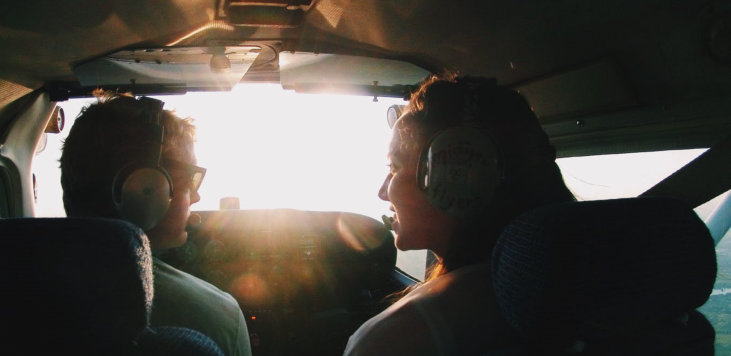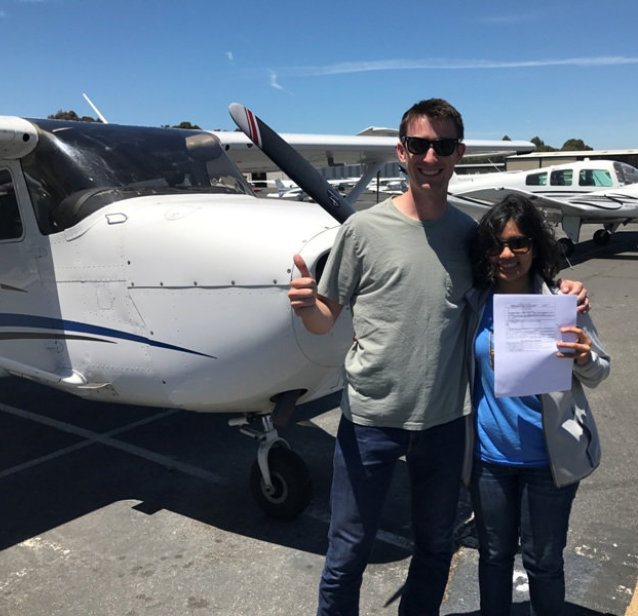Private Pilot Certificate
A private pilot certificate is the most common certificate held by pilots. The FAA does provide for two lesser certifications (Recreational Pilot and Sport Pilot), however most people quickly realize that those certifications carry significant restrictions on allowable aircraft, night flight, and distance that you may fly from you home airport, making a private pilot certificate the most flexible choice.

Entitlements
As a private pilot, you may:
- Operate as pilot and carry passengers for non-commercial purposes without compensation (although costs may be shared)
- Operate an aircraft at night (subject to currency requirements)
- Fly in all eligible airspace under visual flight rules (VFR). Instrument rating required for instrument flight rules (IFR) conditions
- Under certain conditions, participate in charity flights, angel flight, civil air patrol, etc.

Requirements
In order to obtain a private pilot certificate, you will need:
- A Third Class medical certificate
- Able to read, write and speak English
- At least 17 years old
- At least 40 hours of logged pilot time, including 20 hours with an instructor and 10 hours of solo flight
- 5 hours of solo cross country flying, including 1 solo cross country flight of at least 150NM, 3 landings at different airports, and one leg greater than 50NM
- 3 solo takeoff/landings at a tower controlled airport
- 3 hours of night flying, including 1 cross country flight of over 100NM, and 10 takeoff/landings to a full stop
- 3 hours of instrument training
- 3 hours of cross country training
- 3 hours of instruction with an authorized instructor in the previous 2 months
- Pass the aeronautical written knowledge test
- Pass an oral examination and check ride
